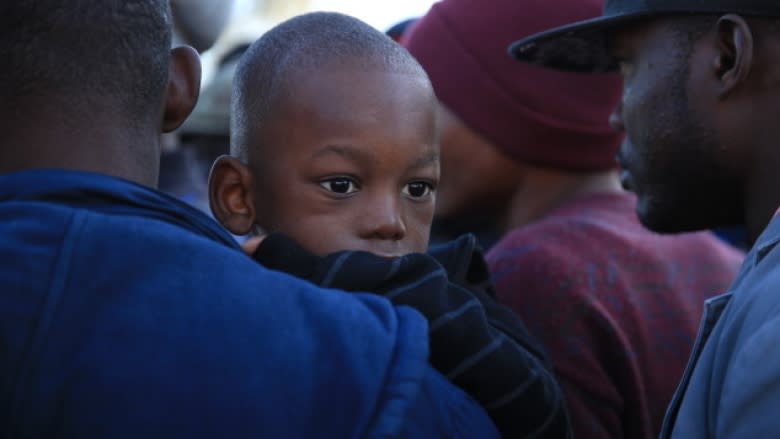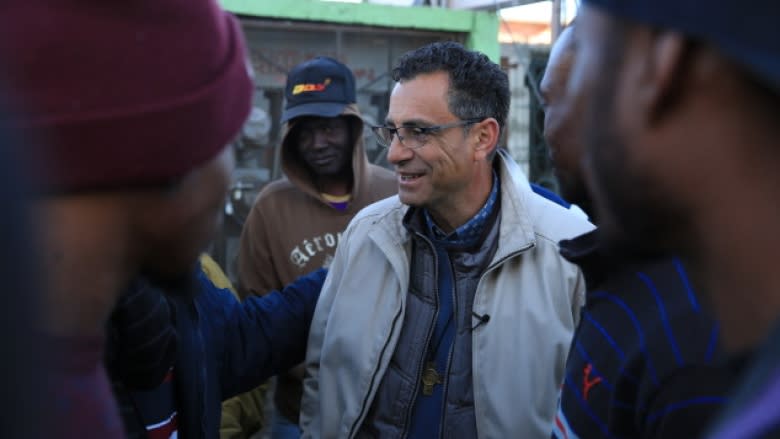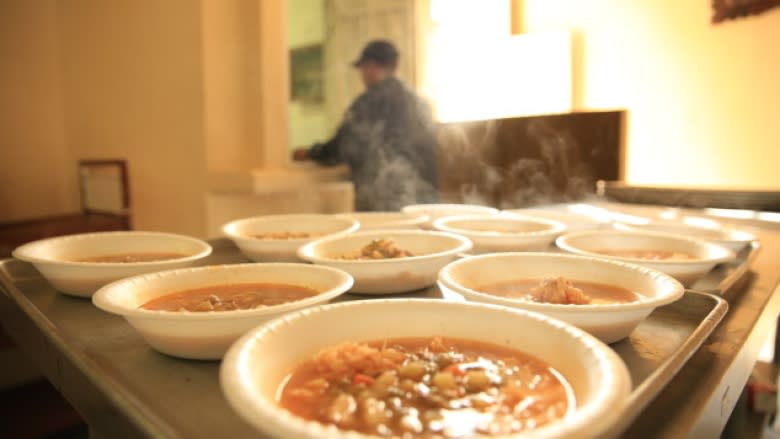Haitian migrants hope to make it to Canada, as Toronto seeks help to deal with refugee influx
Hundreds of Haitian migrants who travelled to Tijuana, Mexico hoping to cross the U.S. border and be granted asylum say they're now setting their sights on Canada.
Radio-Canada went to the border city to speak with dozens of migrants, who have the support of several groups that want to bring them to Toronto. However, this city is already feeling the pressure of an influx of would-be refugees in its shelter system.
Rony Desir, the coordinator of the Haiti House of Greater Toronto, said he's counting on Canadian kindness to get the asylum seekers into the country.
"We know all of our citizens in Canada have a big heart," he said.
Desir has helped launch a petition that calls on the federal government to allow more migrants into the country on humanitarian grounds.
Humanitarian groups estimate there are between 5,000 and 13,000 Haitians in Mexico, many who are in Tijuana.
Rosemond Dorelus and his five-year-old son are among the many migrants who spent several months getting to Mexico from Brazil. Previously, the U.S. government had been allowing a small number of Haitians to cross the border, he said, but that appears to have stopped now that President Donald Trump is in office.
Now, Dorelus said he's not sure if he should risk crossing the border.
"We don't know when we're going to get through, or how we're going to get through," he said in French.
Immigration lawyer Joël Étienne said it could be difficult to get into Canada, too, as the federal government hasn't announced any plans to allow a large number of Haitians into the country — even if they were privately sponsored by Haitian communities that have done well here.
Étienne also warned that the asylum seekers are in a "precarious situation" in Tijuana, a city that has a violent reputation and where they don't speak the language.
Father Mike Pace, of St. Benedict Parish and the Archdiocese of Toronto, runs a shelter in Tijuana where he helps many of the Haitians, including some who are completely out of money by the time they make it to northern Mexico.
He calls the situation a "humanitarian crisis."
More refugees using city shelters
Meantime in Toronto, city officials have been keeping a close eye on the number of would-be refugees arriving in recent months.
On any given night, shelter staff say there are some 877 refugees using city-run shelters — though that number could be higher, as nobody is required to provide their immigration status to receive help in Toronto, which is a designated sanctuary city.
Not all of those refugees have just arrived in the city, but there has been a major increase over the same time last year.
Mayor John Tory recently asked the federal and provincial governments for more support to settle the refugees, and on Thursday, city council welcomed about $100,000 in provincial funding for its newcomer office.
On Wednesday, Tory said he recently met with the immigration minister and is "very hopeful" there will be some new funding for the city in the upcoming federal budget.
Coun. Joe Cressy said he supports welcoming more to Toronto — "When one country closes its borders, others must do more to open their own," he said — but cautioned the city's shelters are already running at full capacity.
He said the city, which axed 10 shelter worker positions in its latest budget, needs to step up.
"Should the federal government provide increased support given the refugee influx? Absolutely. Should the city of Toronto be cutting shelter staff at the very same time? Absolutely not."
Groups supporting the Haitians stuck in Tijuana, meanwhile, are set to hold a meeting later Friday to discuss their next steps.




